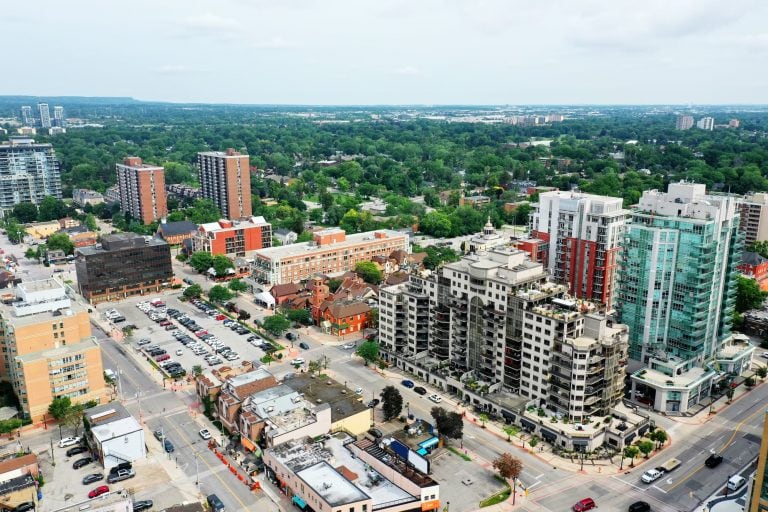Are you thinking about starting a family or expecting a baby? If so, you’re about to embark on one of the most rewarding and challenging journeys of your life. The cost of raising a child can be overwhelming, but we want to help ease your mind by giving you all the information you need in one place. We know every family is different, so use this as a guide that gives you an idea of how much it costs to raise a child in Canada.
Whatever questions are on your mind, we have answers to everything from food costs and clothing expenditures down to education expenses, childcare fees, and even bigger things like housing options in Canada.
The Average Cost For Raising A Child In Canada
A statistic from 2011 published by Statistics Canada said it costs $253,947 to raise a child from birth to 18 years old. If you divide that total, it averages $14,108.17 per year! That number seems alarming, especially if you add inflation, and it’s a wonder why anyone would have a kid, let alone multiple children. Don’t fret, though. There are so many variables not mentioned in that statistic worth discussing.
How Much Can You Expect To Spend On Different Aspects Of Raising A Child In Canada?
We broke down the cost of raising a child in Canada and focused on the necessities: housing, food, transportation, clothing, health, child care, and education. Like we said above, there are many variables, and there’s no one-size-fits-all answer.
Housing
On average, the cost of rent is about $1,800, and the monthly mortgage payment is about $1,600 in Canada. This is such a broad-sweeping statement that we feel it’s important to break it down a bit. The type and size of the home and where a family lives are all aspects to consider. A family living in a single-detached home in Newfoundland and Labrador could easily spend less a month on housing than a family living in a condo in Toronto.
Plus, how much someone earns is a common correlation to how much they spend on their home. For example, a 3-person family could live in a 5-bedroom house in an expensive neighbourhood. Do they necessarily need to live in a place like that? Maybe not, but maybe the parents have had great financial success; they like the area and can afford it. It’s crucial to note, this isn’t everyone’s lifestyle, but it does affect the national average, which is factored in the cost to raise a child from birth to 18 years statistic.
It all depends on what works best for your family. As a new family, you may only need an apartment or condo, but as your family grows, you may decide to live in a family-friendly neighbourhood with single detached houses. It’s also important to keep in mind that you may not always need to get a bigger home every time you add another child to your family. Because of this, it’s safe to say your housing expenses could stay the same year-over-year even though your family is growing.
Food
Though we mentioned the possibility of your housing costs not fluctuating, we can’t say the same for food. Statistics Canada says Canadian families spend an average of $214 per month for each household member on groceries.
As a child gets older, the amount of food they need to nourish their growing body will increase, which means the price of feeding them increases each year too. This tends to reach a peak around 12-14 years old, then slightly taper from there. And of course, the more kids you have, the more you will spend on food.
When thinking of a baby’s first year of life, parents in Canada spend on average about $1,300 a year, or around $110 a month, on formula. When your child is a baby, you may or may not notice your grocery bill increase right away, though. If you have a nursing baby, for the first few months, there could be virtually no increase in food costs, but if you’re supplementing or are full-time formula feeding, then you’ll see a rise in your food expenses.
Eating habits can also play a role in food costs per child. Depending on the kind of food you buy (i.e. organic, junk food, pre-made meals), buying sodas vs. water, where you buy groceries or if your family goes out to eat often, your food expenses reflect your actions. They will either increase or decrease the amount of money you spend.
Transportation
Statistics Canada showed in 2019 that households spent on average $12,737 a year on transportation. To break it down a little further, private transportation averaged $11,258, and public transportation costs were about $1,479. As this statistic is a few years old, you can expect these numbers to be a little higher now due to inflation.
Private transportation is the most common and most expensive form of transportation. You may already have a vehicle (or two), so your vehicle payment doesn’t exactly increase with each new member of your family. The more children you have, eventually, you may need a bigger vehicle to fit everyone, though.
Auto Insurance
Auto insurance is a requirement when driving your own vehicle. It doesn’t increase when you have children, but as they get older and start to drive, you’ll need to factor in the cost of insurance. In most provinces, eligibility to start driving is 16 years. Auto insurance for young drivers is higher than adults and averages between $3751 and $7,280 a year. There are many reasons for this, including vehicle make and model, male or female, and simply lacking experience with driving.
When looking at the average auto insurance price across the country, you’ll find that where you live plays a role in the cost of premiums too. For instance, people living in British Columbia or those who call Ontario home will pay more than double, on average, than those living in Nova Scotia or New Brunswick.
Car Seats
Though you don’t have to think about the cost of auto insurance for a long while, you will need to consider car seats for your baby as they continue to grow for the next several years. On average, car seats cost $390, and it’s not exactly a one-time purchase. There are three types of car seats suited to meet the needs of your child at different stages of growth: rear-facing, forward-facing, and booster seats. Prices range drastically for each seat, so it’s important to note that all car seats must pass the same safety standards to be available on the market, regardless of price.
Clothing
There’s a MoneySense statistic from 2011 that was adjusted in 2015 to reflect the inflation of that time. The numbers reflected the average clothing expenses of $874 a year, or about $73 a month. Time has passed, and we can almost guarantee that number has gone up. With that said, clothing is an area that directly correlates with how much a family’s income is. However, there are ages where you may spend more than others.
In the first two years of life, children grow fast and are constantly moving up in sizes, which will cause you to spend more on buying clothes that fit. There is also a considerable amount of money spent on diapers that we feel is worth mentioning too. It’s estimated that babies go through about 2,700 diapers in their first year of life. Most parents choose disposable diapers, which can average about $900 a year. Others decide to use cloth diapers, which total around $775 a year when you factor in the cost of the diapers plus washing and drying.
Eventually, your child won’t need diapers anymore, and their growth will slow down. You can expect to spend less on clothing from about 3 to 11 years old. After that, children’s bodies start growing rapidly again, causing them to need new clothes often, which means your kid’s clothing expenses could increase again.
Health
Statistics say families spend about $255 per child yearly on health expenses. It goes without saying, but the cost of health care can be hard to predict for your child because it depends on several factors, like insurance, health coverage, lifestyle, and, most importantly, your child’s individual medical needs.
Canada is known for its publicly funded health care system, which covers up to 70% of expenses for doctor visits and medical procedures for its citizens and residents. Canadians, as a whole, typically pay less for their prescriptions with government regulations to keep inflation at bay. Some provinces offer extra benefits too. For instance, residents of Ontario from birth to 25 and over 65 years receive free prescription medicine via the Ontario Health Insurance Plan.
About 65% of Canadians also have private health insurance, which is oftentimes offered through their employer, and offsets cost not included in Medicare. Specifically, this can help with eye exams and glasses, prescription drugs, and other medical needs like visiting a psychologist.
Child Care and Education
In 2020, the median daycare cost in Canada ranged from about $1,600 a month in Toronto to about $450 for those who live in Winnipeg. This is not surprising, given the cost of raising a child in Canada varies depending on where you live.
One of the most important decisions parents make when planning for a new baby is child care. Some families will decide to have a parent stay home with the child because they want to. Others simply don’t see the point in working after paying for child care. If you need to send your child to daycare so you can keep working, you can apply for the Canada Child Benefit to help offset the cost, which is available to qualified parents and caregivers.
As your child gets older, you won’t necessarily have to pay for childcare anymore, but depending on where they go to school will determine the cost of education. Public schools are funded by the government and are virtually free, and tuition for private schools is anywhere between $4,000 to $26,000 a year.
Raising A Child In Canada
It’s difficult to nail down an exact number for how much it costs to raise a child in Canada, but we hope you’ve found this information helpful for budgeting and planning your family’s future.













